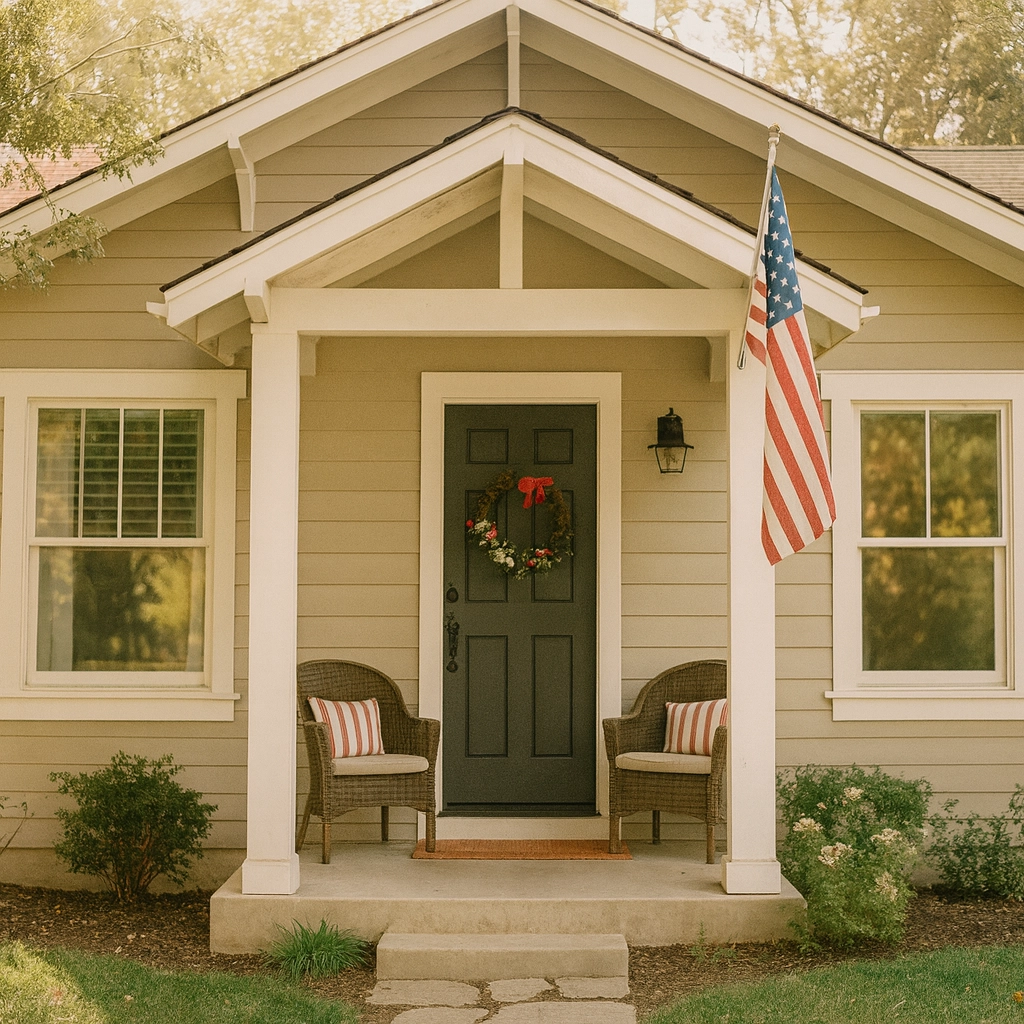
Veteran homelessness is a major challenge facing our communities. For decades, traditional methods asked homeless veterans to prove they were “ready” for housing. This meant long checklists, strict conditions, and the constant threat of losing what little stability they managed to achieve. The result? Too often, these approaches kept people caught in a cycle of waiting and struggle.
Housing First flips this outdated method on its head. Instead of saying “earn your way to a home,” it says “you deserve a home, first and foremost.” This is a philosophy rooted in compassion, and the evidence shows it works.
Housing First is built on a simple yet profound belief: everyone has the right to a safe and stable place to live. It doesn’t matter if someone is battling addiction, struggling with mental health, or hasn’t followed a traditional path. Housing comes first.
This approach began to gain ground after leaders asked people experiencing homelessness how they could be helped. The answer was almost always the same: “We need a place to live.” It makes sense. When you’re struggling on the street, everything becomes a challenge: finding food, staying safe, and focusing on any kind of long-term goal.
By moving people directly from the streets or shelters into permanent housing, Housing First clears away the obstacles. There’s no long waiting period, no hoops to jump through, and no forcing someone into treatment programs before they even have a place to sleep.
The U.S. Department of Veterans Affairs (VA) was one of the first agencies to adopt the Housing First model nationwide. They recognized that veterans often face unique barriers to stable housing, like post-traumatic stress, physical injuries, or lack of family support.
Here’s how the Housing First approach is put into action:
The shift is simple but powerful. Instead of saying “prove you can handle a home,” the system says “let’s get you into a home, and then tackle everything else together.”
Compassion isn’t just a nice idea. It leads to real, measurable change. Since adopting Housing First as its core principle in 2012, the VA has helped reduce veteran homelessness across the country by more than 50%. Over 80 communities and three entire states have announced they’ve ended veteran homelessness, according to the most current counts.
Let’s dig into the numbers:
When you start with a foundation of basic dignity and meet people where they are, the outcomes change for the better.
Many veterans on the street are living with trauma, mental health issues, or substance use disorders. The old system often asked them to get “clean” or start therapy before they could access housing. That’s a tall order when you’re sleeping in your car or under a bridge.
Housing First removes these barriers entirely. Once a veteran has a stable address, a door that locks, and a bed to call their own, it’s a whole lot easier to seek medical care or counseling. Research shows that most individuals are more likely to address issues with mental health or addiction once their basic needs are met.
This isn’t just theory; it’s proven in the real world. When consistent housing is in place, veterans have a higher chance of holding down a job, reconnecting with family, and managing their health. The cycle of crisis is interrupted, making space for real recovery.
A key part of the Housing First approach is what comes next. It’s not just about handing someone a key and wishing them luck. Veterans in these programs get access to compassionate, professional case management. This can include:
Teams often go out to where the veteran lives instead of waiting for them to ask for help. This hands-on model builds trust and helps prevent veterans from falling through the cracks.
Want to get a better idea of what this looks like? Check out our How We Help page for stories from real people and a rundown of the services we offer.
Right here at Compassionate Homes for Veterans, we bring the Housing First philosophy into everything we do. We start with the belief that a home is the foundation for hope, growth, and new beginnings.
One recent story stands out. A veteran named Mark had been living in his car for nearly two years, struggling with untreated PTSD and isolation. Through our partnership with the VA’s HUD-VASH program, Mark moved into a fully furnished apartment in less than a week. Once he was housed, he connected with a counselor, started attending group therapy, and within months, had landed a part-time job. The difference? Someone listened with compassion and gave him a place to start, with support every step of the way.
You can learn more about our team, our mission, and how to help at the About Us page.
Like any system, Housing First isn’t perfect on its own. Some communities struggle with affordable housing shortages. Others may lack enough case managers or supportive services to meet every need. But time and time again, the evidence shows that investing in this compassionate approach saves money in the long run. Fewer emergency room visits, less time spent in jails or shelters, and better long-term health outcomes create powerful cost savings and a healthier community.
Plus, by reducing veteran homelessness, Housing First helps heal the cracks in our society. When we show up for those who served, we set an example of solidarity and respect.
Combating veteran homelessness is something we all have a stake in. If you’re passionate about supporting this compassionate approach, there are several ways to get involved:
Housing First works because it believes in people. It gives every veteran the secure footing they need to tackle life’s next chapter. Instead of locking veterans out of housing or piling up requirements, we welcome them in and offer a helping hand.
The Compassionate Homes for Veterans team is proud to put this philosophy at the center of our work. Our experience and the evidence both show that compassion isn’t just the kind choice, it’s the winning strategy for ending veteran homelessness.
If you want to learn more or join our mission, get in touch at Contact. Together, we can make sure every veteran has the chance to come home.
Your support can change lives. Whether you’re donating, volunteering, or partnering with us, every action counts.
